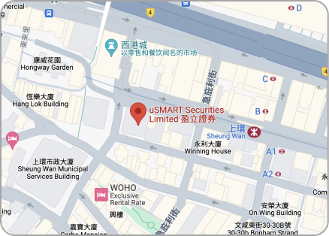Tencent, which once relied on its investment division for a third of its profits, is now undergoing a significant shift in its investment strategy. At the beginning of 2025, Tencent started making large-scale investments, each exceeding 100 million yuan. Notably, two of these investments focus on the healthcare sector: Libaon Pharmaceuticals, which specializes in kidney disease drug development, and Kunwei Technology, which is dedicated to super-resolution imaging technology. In 2024, out of 22 investment events Tencent participated in, 9 were in the healthcare sector, surpassing even the popular AI sector.
At the 2023 strategic performance briefing, Tencent's management made it clear that future new investments would primarily involve reallocating funds from existing projects rather than adding new capital. This cautious investment strategy resulted in approximately 40% of last year's investments being additional funding for existing projects. Despite the overall contraction in investment, Tencent's commitment to the healthcare sector has become evident.
The rapid development of AI and large models is the underlying logic behind this transformation. Nvidia CEO Jensen Huang has repeatedly emphasized that the combination of AI and biology will lead to disruptive technology. Tencent seems to have recognized this trend early on, continuing to invest in AI-driven pharmaceutical solutions even during the overall downturn of "AI pharmaceutical" investments around 2018.
With the emergence of ChatGPT, numerous medical vertical models have appeared within just two years, significantly enhancing the efficiency of drug development through AI. The industry widely believes that the traditional pharmaceutical sector is transitioning from an "experience-driven" model to a "data and algorithm-driven" model, creating vast market potential. Drug development typically takes more than 10 years and costs over $1 billion, and AI has the potential to change this reality.
Tencent's layout in healthcare dates back to 2014, during the early years of internet medical entrepreneurship. Tencent invested in several internet medical companies, such as Dxy.cn and WeDoctor, and established partnerships with thousands of hospitals nationwide to launch WeChat appointment scheduling services. Through these investments, Tencent built a closed-loop medical platform connecting hospitals, doctors, and patients.
In recent years, Tencent's investment strategy has shifted from broad coverage to a more focused approach on innovative drug development. Since 2024, medical investment events have involved multiple sectors, including ultrasound, biopharmaceuticals, and cell therapy, indicating a transformation towards innovative drugs.
Tencent's layout in the AI field is also accelerating. In 2020, Tencent launched the AI drug discovery platform "Yunshen Zhiyao" to expedite the new drug development process. By 2023, it introduced a medical large model and launched multiple AI products to enhance healthcare services. Interestingly, Tencent's sensitivity to medical innovation appears to be higher than that of many traditional pharmaceutical companies. After Tencent's deep investment in innovative drugs over the past two years, several pharmaceutical companies have started incorporating AI tools like DeepSeek to enhance drug research decision-making capabilities.
Despite initial market skepticism regarding Tencent's entry into the pharmaceutical industry, the company's deep investments and strategic collaborations in this field have demonstrated a strong commitment. Tencent's investment strategy not only encompasses traditional healthcare but also extends to cutting-edge areas like drug development and diagnostics. In summary, Tencent is shifting its investment focus towards the pharmaceutical industry, driven by a profound insight into the opportunities presented by AI technology. This strategic transformation reflects Tencent's intention to leverage its strengths in connectivity and innovation to seize opportunities in future healthcare and drug development. As Tencent continues to explore the intersection of AI and pharmaceuticals, its influence in this field is set to grow significantly.
How to Trade on uSMART
After logging into the uSMART HK APP, click on the search icon at the top right of the screen. Enter the stock code, such as "00700.HK" to access detailed information, trading history, and trends. Click the “Trade” button at the bottom right, select the “Buy/Sell” function, and submit your order after filling in the transaction conditions.
(Source: uSMART HK)




